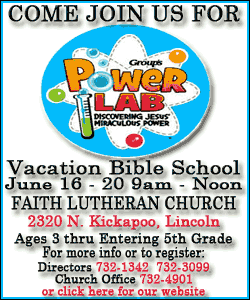|
 Grossman, 56, put himself in position to win by spelling "botryoidal." He clinched the title Saturday by correctly spelling "debouch," which means "to come forth; emerge." Grossman, 56, put himself in position to win by spelling "botryoidal." He clinched the title Saturday by correctly spelling "debouch," which means "to come forth; emerge."
Grossman, of Northwood, N.D., is a teacher and six-time winner of the North Dakota state spelling bee. For winning the 13th annual AARP The Magazine's National Spelling Bee, he gets to take home $500 plus bragging rights.
"This is a great feeling. `Great' doesn't seem like a very adequate word but that's all I can think of on short notice," he said.
In winning the contest for people 50 and over, Grossman didn't get the big bucks or the national television coverage that children get for winning the Scripps National Spelling Bee. On the other hand, the kids don't get to misspell two words.

Contestants in the senior bee's final, oral round are eliminated on their third misspelled word. The last four contestants all missed two words, making for a tense showdown.
"It was kind of like the bottom of the ninth with two outs," Grossman said.
Last year's third-place finisher, Michael Petrina Jr., of Arlington, Va., took second. Petrina was eliminated by misspelling "umbones," which is the word for a knob or protrusion at the center of a shield.

"There were a lot of good spellers up on stage during the finals and it was sort of luck of the draw," said Petrina, 63, a retired lobbyist for the personal care products industry.
Finishing third was Scott Firebaugh, of Knoxville, Tenn. Firebaugh tripped up on the word "wampumpeag," a string of polished beads or shells.
[to top of second column] |
 Firebaugh has plenty of experience with spelling bees. He finished 16th in the youth Scripps National Spelling Bee in 1967 and now coaches youngsters in spelling.
He said he studied a list of 6,600 words a day to prepare. But math, not spelling, is his strong suit: He's a high school math teacher.
"I like the structure of it," he said of spelling. "I've noticed that the national bee, with the kids, a lot of them say math is their favorite subject."
Norman Zucker, of Sebastopol, Calif., came in fourth. Bill Long, of Salem, Ore., was fifth.
Forty-seven people from 24 states competed. The 16 oral-round finalists advanced from a round in which spellers had to correctly write down 100 words that were read aloud to them.
Those words included "petrographer," a person who studies rocks, and the dauntingly vowel-less "crwth"
- pronounced CROOTH - a Welsh stringed instrument.
[Associated
Press; By MEAD GRUVER]
Copyright 2008 The Associated
Press. All rights reserved. This material may not be published,
broadcast, rewritten or redistributed.
 |